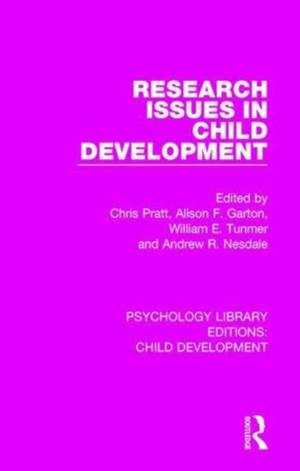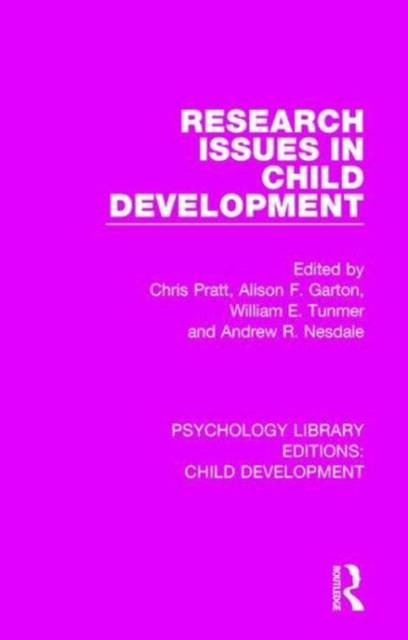
- Retrait gratuit dans votre magasin Club
- 7.000.000 titres dans notre catalogue
- Payer en toute sécurité
- Toujours un magasin près de chez vous
- Retrait gratuit dans votre magasin Club
- 7.000.000 titres dans notre catalogue
- Payer en toute sécurité
- Toujours un magasin près de chez vous
Research Issues in Child Development
Description
First published in 1986, this authoritative book contains a selection of original, research based, reports of studies conducted in Australia and New Zealand in the field of Child Development. The topics have been arranged into four major sections - cognitive issues in development, language and reading development, perpetual motor development and social aspects of development. Both pure and applied research issues are presented, and the chapters cover child development from infancy to adolescence.
The book's special strength lies in the diversity of topics tackled and the range of developmental research represented. Theoretical viewpoints are raised and empirical questions answered in the studies reported. The editors have systematically drawn together important contributions which reflected contemporary topics in child development at the time. Although no one common theoretical or empirical theme unites either each section or the whole book (which reflects the general scope and diversity of child development in the 1980s), the contributors in general see the child as developing through active interaction with his or her environment. This interactionist position is clearly preferred by most researchers, who realised that simplistic genetic or environmental models are inadequate to explain the complex development of the child.
The editors were all active researchers in the area of child development at the time and each co-authored a chapter in the book. All published regularly in national and international journals and books, and were aware of current developments in their main areas of expertise.
All those interested in issues in child development will find this book important reading, as it provides the reader with an excellent and diverse selection of studies, bearing on a wide range of empirical research.
Spécifications
Parties prenantes
- Editeur:
Contenu
- Nombre de pages :
- 228
- Langue:
- Anglais
- Collection :
- Tome:
- n° 11
Caractéristiques
- EAN:
- 9781138501010
- Date de parution :
- 07-12-17
- Format:
- Livre relié
- Format numérique:
- Genaaid
- Dimensions :
- 138 mm x 216 mm
- Poids :
- 452 g






